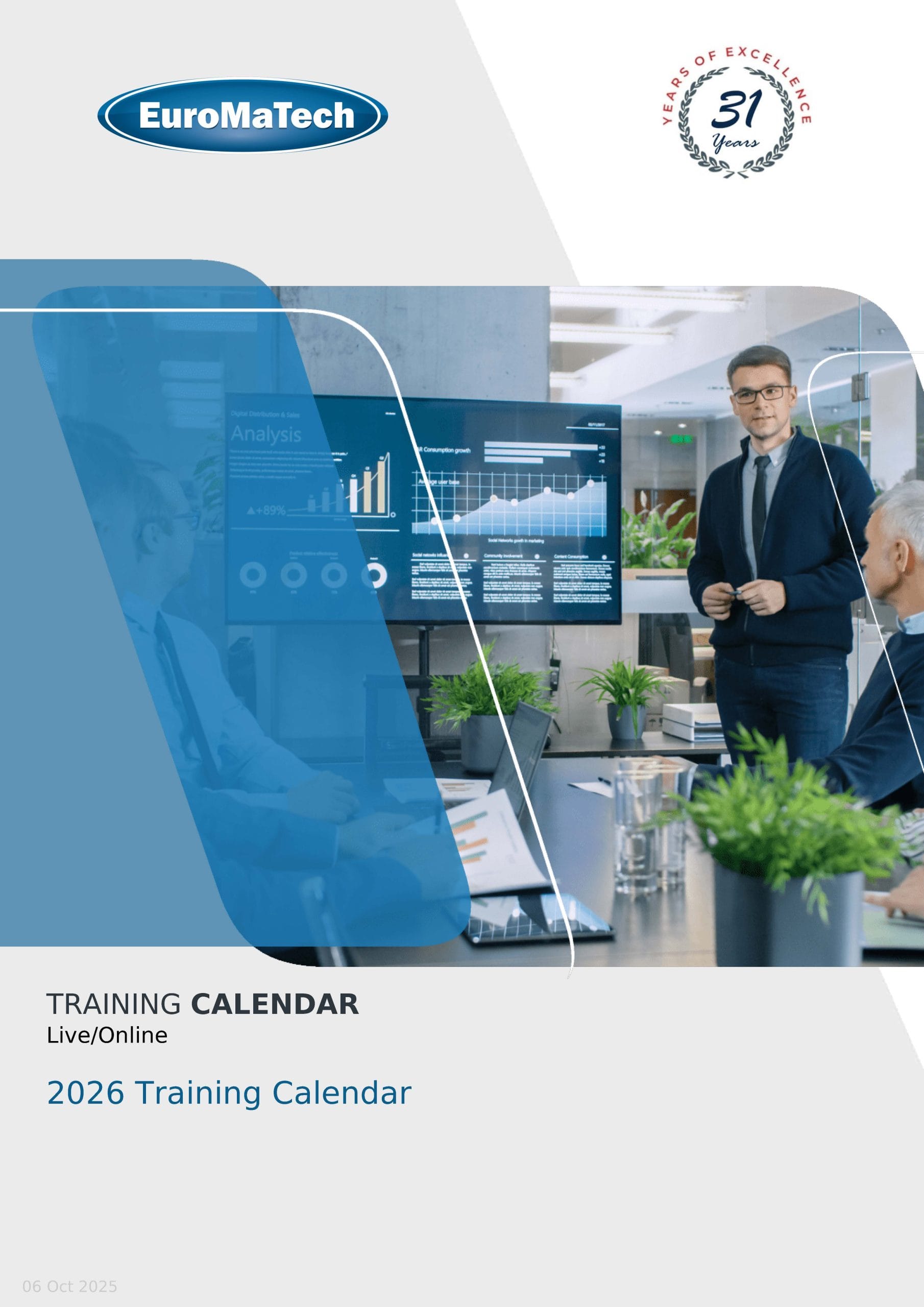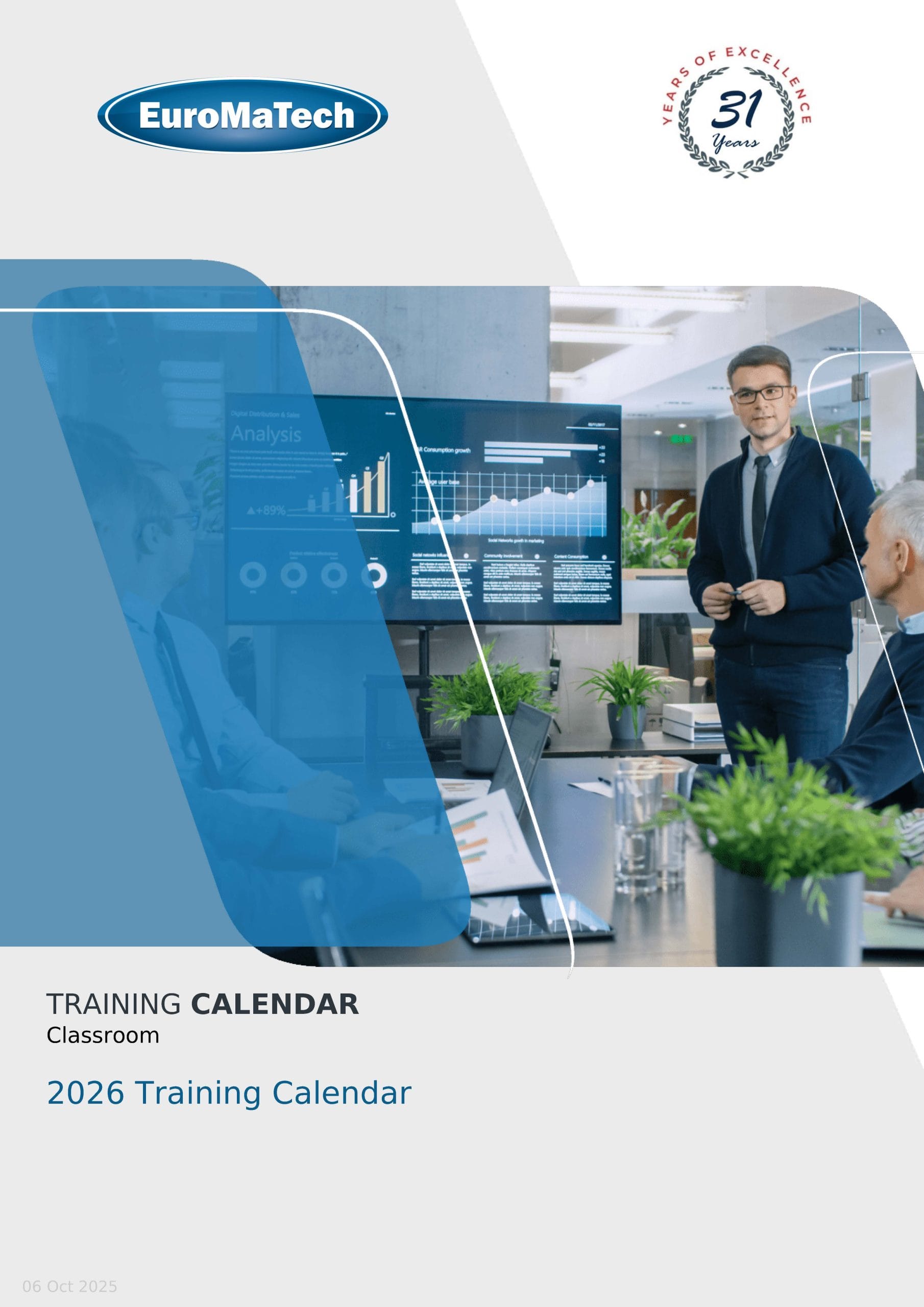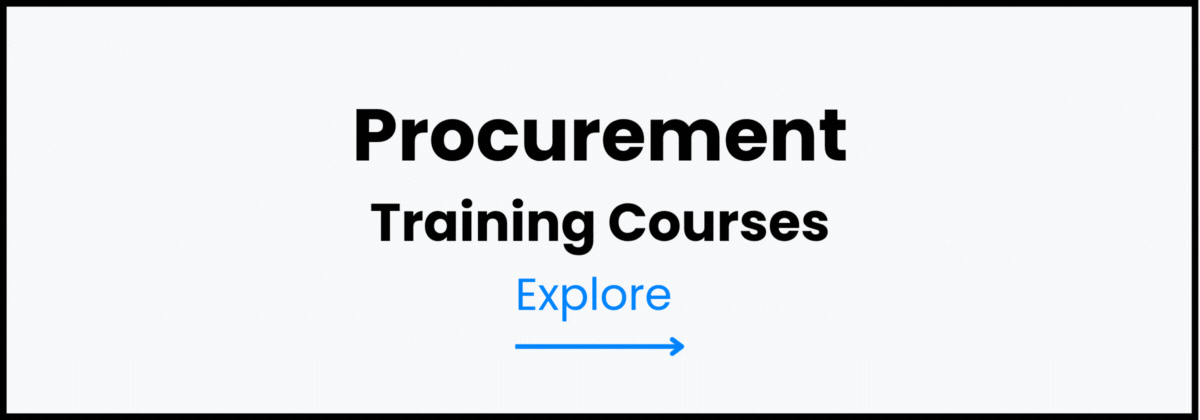Navigating GDPR and Procurement Data Requirements
The Intersection of GDPR and Procurement
In the age of digital transformation, procurement is no longer confined to managing supplier relationships or negotiating contracts. It now involves handling vast amounts of personal and organizational data—much of which falls under the jurisdiction of stringent data protection laws such as the General Data Protection Regulation (GDPR).
Procurement professionals are increasingly expected to understand and implement GDPR compliance into their operations, especially when dealing with suppliers, vendor contracts, and cross-border transactions. The complexity lies in aligning procurement strategies with data privacy regulations—something that cannot be achieved without adequate governance, systems, and expertise.
To navigate this evolving landscape, training plays a pivotal role. Courses such as the Best Practice and Principles of Procurement Course equip professionals with the regulatory knowledge and risk mitigation strategies necessary to remain compliant while maintaining procurement efficiency.
What Is GDPR and Why Does It Matter in Procurement?
GDPR, implemented by the European Union in 2018, is one of the most comprehensive data protection frameworks in the world. It regulates the collection, storage, use, and sharing of personal data and applies not only to EU organizations but also to any entity processing EU citizen data—regardless of geographic location.
Procurement departments regularly handle:
- Supplier data (contact names, emails, bank information)
- Contractual documents with embedded personal information
- Employee data for vendor onboarding and due diligence
- Data shared with third-party service providers
This makes procurement a high-stakes area for GDPR compliance. Non-compliance can lead to severe penalties, reputational damage, and loss of stakeholder trust.
The growing reliance on digital tools such as e-procurement platforms and contract automation further increases the volume and complexity of data involved—highlighting the need for professionals to be GDPR-aware across all procurement processes.
GDPR Principles Every Procurement Professional Must Understand
Before procurement teams can apply GDPR practices, they must first understand its core principles:
-
Lawfulness, Fairness, and Transparency
Procurement must collect and use personal data in a lawful and transparent manner, ensuring individuals know how their data will be processed.
-
Purpose Limitation
Personal data should only be collected for specified, legitimate purposes and not used for unrelated activities without consent.
-
Data Minimization
Only data that is directly relevant and necessary should be collected during procurement activities.
-
Accuracy
Procurement systems must ensure supplier and stakeholder data is up-to-date and correct.
-
Storage Limitation
Personal data should not be stored longer than necessary and must have defined retention periods.
-
Integrity and Confidentiality
Procurement processes must implement appropriate security controls to protect data from unauthorized access or breaches.
These principles are explored practically in the Contracts Management Course, which offers insights into legal obligations and compliance frameworks applicable to procurement functions.
How GDPR Affects Common Procurement Activities
-
Supplier Onboarding and Evaluation
During onboarding, procurement gathers personal data such as identification documents, tax information, and contact details. Under GDPR, this data must be:
- Justified by lawful grounds (e.g., contract or legal obligation)
- Stored securely
- Shared only with authorized personnel
Training like the Category Management in Procurement Course helps teams understand how to streamline onboarding while ensuring data protection.
-
Contract Management
Contracts often contain sensitive data, including named individuals, contact points, and financial details. GDPR requires that this data be:
- Handled with transparency
- Included in data processing agreements if third parties are involved
- Encrypted and securely stored
The Digital Contracts and e-Procurement – Best Practices for Success Course addresses these digital compliance strategies in detail.
-
Third-Party Risk Management
Procurement departments must ensure that suppliers and contractors also adhere to GDPR. This requires:
- Including data protection clauses in contracts
- Conducting third-party risk assessments
- Monitoring supplier compliance regularly
The Combating Risk and Fraud in Procurement Course covers methodologies for assessing supplier risk and implementing control mechanisms to prevent GDPR violations.
Best Practices for Ensuring GDPR Compliance in Procurement
To align procurement activities with GDPR, organizations should embed data protection into every stage of the procurement lifecycle. Below are key best practices:
-
Conduct a Procurement Data Audit
Begin by identifying all data touchpoints, including:
- Supplier databases
- Communication platforms
- E-sourcing tools
- Contract archives
This audit helps categorize the types of personal data being processed and reveals potential gaps in compliance.
-
Implement Data Processing Agreements (DPAs)
Whenever procurement data is shared with third-party service providers—such as logistics firms or payment processors—organizations must establish formal DPAs to ensure these partners handle data lawfully.
-
Embed Privacy by Design
From RFP templates to contract management tools, every procurement-related system should be built with data protection in mind. This includes:
- Limiting data fields in digital forms
- Controlling access levels
- Automating retention policies
These practices are essential for sustainable compliance, as highlighted in Procurement Courses.
-
Train Procurement Staff on GDPR
Everyone in the procurement function should understand their responsibilities under GDPR. Training programs should include:
- Data classification and sensitivity
- Lawful processing grounds
- Breach response protocols
- Record-keeping requirements
Courses like the Best Practice and Principles of Procurement Course are instrumental in building this knowledge across teams.
-
Define a Breach Response Plan
Even with the best controls, breaches can occur. Procurement teams must be prepared with:
- Incident response workflows
- Supplier notification protocols
- Regulatory reporting procedures
Being prepared can significantly reduce legal and reputational fallout.
Challenges Procurement Teams Face in GDPR Compliance
Despite best efforts, procurement teams often encounter difficulties in aligning with GDPR. Common challenges include:
- Lack of centralized data systems: Decentralized supplier information makes audits and compliance checks difficult.
- Complex global supply chains: Vendors from outside the EU may not understand GDPR requirements.
- Inconsistent contract language: Without standardized data protection clauses, organizations may inadvertently expose themselves to risk.
- Limited training or awareness: Procurement professionals may not be fully aware of their role in GDPR enforcement.
Each of these obstacles can be addressed with structured learning and policy development, particularly through targeted procurement and contract management courses.
Leveraging Technology to Support Compliance
Modern procurement platforms and contract management tools offer built-in GDPR features such as:
- Audit trails for data access
- Permission controls and encryption
- Automated alerts for data retention deadlines
- Vendor risk scoring tools
However, technology alone is not enough. The implementation of these tools must be guided by procurement professionals who understand both the legal and operational implications—a perspective developed through advanced training like the Digital Contracts and e-Procurement – Best Practices for Success Course.
A Dual Focus on Compliance and Value
Navigating GDPR within procurement is not just a compliance exercise—it’s an opportunity to build trust, transparency, and operational excellence. Data protection adds value to procurement by:
- Enhancing supplier relationships
- Reducing risk and fraud
- Improving data governance
- Supporting ESG and corporate responsibility initiatives
To successfully balance compliance and performance, procurement professionals must be equipped with current knowledge, practical tools, and strategic insight. Whether you’re establishing procurement policies, managing supplier risk, or evaluating digital systems, foundational courses such as the Category Management in Procurement Course, Combating Risk and Fraud in Procurement Course, and Contracts Management Course offer the resources and frameworks necessary to thrive in a GDPR-regulated world.
Explore:





